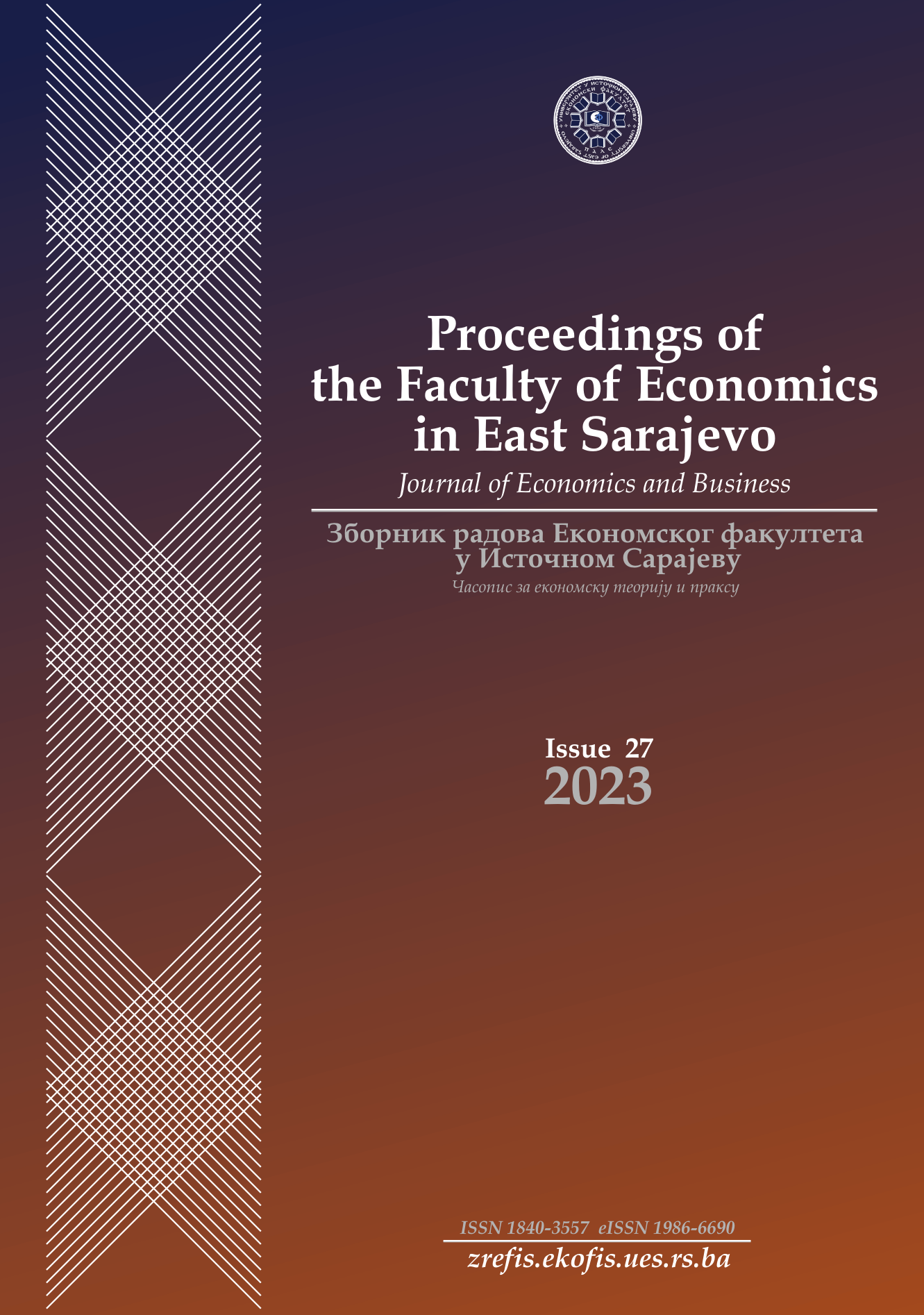TESTING KALDOR’S FACT: EMPIRICAL EVIDENCE FROM EUROPEAN COUNTRIES
DOI:
https://doi.org/10.7251/ZREFIS2327037TAbstract
This paper discusses the functional distribution of income, as a consequence of decoupling phenomenon between workers’ compensation and labor productivity. This issue has been observed since the mid- 1970s in most developed economies, resulting in a trend of decreasing labor income in national income or GDP. Despite conventional economic theory predicting a proportional increase in workers’ income with increases in labor productivity, empirical results suggest that this relationship is not being realized. The study analyzes the distribution of labor income and capital income in relation to GDP in European countries, in order to gain insight into the conditions and trends of labor income and to evaluate the functional distribution of income at the level of an individual country. The paper provides a detailed analysis of labor share on the example of all countries in Europe and compares countries to determine the direction and degree of trend of the labor share. The results highlight the need for further research on this topic and provide insight into the factors contributing to the decoupling of productivity from workers’ compensation.

